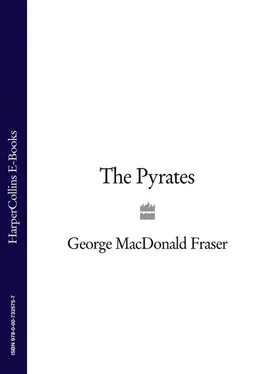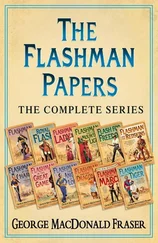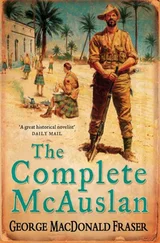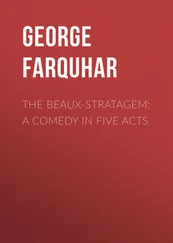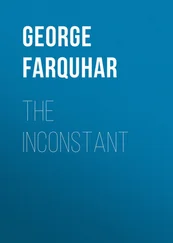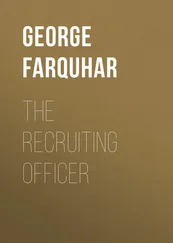So, out of deference and gratitude to them all, and because history is very much what you want it to be, anyway, this story begins in that other, happier England of fancy rooted in truth, where dates and places and the chronology of events and people may shift a little here and there in the mirror of imagination, and yet not be thought false on that account. For it’s just a tale, and as Mark Twain pointed out, whether it happened or did not happen, it could have happened. And as all story-tellers know, whether they work with spoken words in crofts, or quills in Abbotsford, or cameras in Hollywood, it should have happened.
Thus:
It was on a day when, for example, King Charles was pleasantly tired after a ten-mile walk and was guiltily wondering whether he ought to preside at a meeting of his Royal Society, or take Frances Stuart to a very funny, dirty play whose jokes she would be too pure-minded to understand;
when Barbara Castlemaine was surveying her magnificence in the mirror, regretting (slightly) the havoc wrought by last night’s indulgence, and scheming how to foil her gorgeous rival, the Duchess of Portsmouth;
when, in far Jamaica, fat and yellow-faced old Henry Morgan was blowing impatiently into the whistle on the handle of his empty tankard for a refill, and wistfully reminiscing with the boys about flashing-eyed Spanish dames and treasure-stuffed churches of Panama and Portobello;
when Mr Evelyn was noting in his diary that the Duke of York’s dog always hid in the safest corner of the ship during sea-battles, and Mr Pepys was recording in his diary that on the previous night he had urinated in the fireplace because he couldn’t be bothered going out to the usual offices (and anyone checking these entries will find they are years apart, which gives some idea of the kind of story this is);
when Kirk’s mercenaries were tramping sweatily across the hot sands of the High Barbaree, licking parched lips at the thought of sparkling springs, or dusky Arab beauties in the suk of Tangier, or the day when their discharges would come through;
when a dear old tinker was dying of the cold, poor and humble and unnoticed by the great world, with the sound of choiring angels in his ears and no notion that one day he would be remembered as the greatest writer of plain English that ever was;
when the sound of the Dutchmen’s guns was still a fearsome memory along Thames-side, and Louis XIV was dreaming grandiose dreams and summoning his barber for his twice-weekly shave …
All these things were happening on the day when the story begins, but they don’t really matter, and have been set down for period flavour. The real principals in our melodrama were waiting in the wings, entirely unaware of each other or of the parts they were to play. They don’t actually come on just yet, but since they are the stars we should take a preliminary look at them.
First:
Captain Benjamin Avery, of the King’s Navy, fresh from distinguished service against the Sallee Rovers, in his decent lodging at Greenwich, making a careful toilet, brushing his teeth, combing his hair, adjusting his plain but spotless neckcloth, shooting his cuffs just so, and bidding a polite but aloof good morning to the adoring serving-maid as she brings in his breakfast of cereal, two boiled eggs, toast and coffee, and scurries out with a breathless, fluttering curtsey. Captain Avery straightens his coat and decides as he contemplates his splendid reflection that preferment and promotion must soon be the lot of such a brilliant and deserving young officer.
If you’d been there you would have seen his point, and the adoring maid’s. Captain Avery was everything that a hero of historical romance should be; he was all of Mr Sabatini’s supermen rolled into one, and he knew it. The sight of him was enough to make ordinary men feel that they were wearing odd socks, and women to go weak at the knees. Not that his dress was magnificent; it was sober, neat, and even plain, but as worn by Captain Avery it put mere finery to shame. Nor did he carry himself with ostentation, but with that natural dignity, nay austerity, coupled with discretion and modesty, which come of innate breeding. His finely-chiselled features bespoke both the man of action and the philosopher, their youthful lines tempered by a maturity beyond his years; there was beneath his composed exterior a hint of steely power, etc., etc. You get the picture.
For the record, this wonder boy was six feet two, with shoulders like a navvy and the waist of a ballerina; his legs were long and shapely, his hips narrow, and he moved like a classy welterweight coming out at the first bell. His face was straight off the B.O.P. cover, with its broad unclouded brow, long fair hair framing his smooth-shaven cheeks; his nose was classic, his mouth firm but not hard, his eyes clear dark grey and wide-set, his jaw strong and slightly cleft, and his teeth would have sent Kirk Douglas scuttling shamefaced to his dentist. His expression was at once noble, alert and intelligent, deferential yet commanding … sorry, we’re off again.
In short, Captain Avery was the young Errol Flynn, only more so, with a dash of Power and Redford thrown in; the answer to a maiden’s prayer, and between ourselves, rather a pain in the neck. For besides being gorgeous, he had a starred First from Oxford, could do the hundred in evens, played the guitar to admiration, helped old women across the street, kept his finger-nails clean, said his prayers, read Virgil and Aristophanes for fun, and generally made the Admirable Crichton look like an illiterate slob. However, he is vital if you are to get the customers in; more of him anon.
Secondly, and a sad come-down it is if you’re a purist, meet Colonel Tom Blood, cashiered, bought out, and all too obviously our Anti-Hero, in his lodgings, a seedy attic in Blackfriars, with a leaky ceiling and the paper peeling off the walls in damp strips. He has five pence in his pocket, his linen is foul, his boots are cracked, he hasn’t shaved, there’s nothing for breakfast but the stale heel of a loaf and pump water, and his railing harridan of a landlady has just shrieked abusively up the stairs to remind him that he is six weeks behind with the rent. But Colonel Blood is Irish and an optimist, and lies on his unmade bed with his hands behind his head, whistling and planning how to elope with a rich cit’s wife once he has brought the silly bag to the boil and she has assembled her valuables. He’d need a razor from somewhere, to be sure, and a clean shirt, but these – like poverty, hunger, and a shocking reputation – were trifles to a resourceful lad who had once come within an ace of stealing the Crown Jewels.
One should not be put off by the bad press given to Blood by that prejudiced old prude, Mr Evelyn, who once had dinner with him at Mr Treasurer’s, and kept a tight grip on his wallet during the meal, by the sound of it. “That impudent bold fellow”, he wrote of the gallant Colonel, “had not only a daring, but villainous unmerciful look, a false countenance, but very well spoken and dangerously insinuating”. Not quite fair to a dashing rascal who, if not classically handsome, was decidedly attractive in a Clark Gable-ish way, with his sleepy dark eyes, ready smile, and easy Irish charm. Tall, strong and well-made, perhaps not as slim as he would have liked, but trim and fast on his feet for all that; an affable, deceptively easygoing gentleman and quite a favourite with the less discriminating ladies who were beguiled by his trim moustache and lively conversation. A tricky, dangerous villain, though, when he had to be, which was deplorably often, for of all the Colonel’s many and curious talents, finding trouble was the first.
So there they were, the two of them, miles and poles apart, and hardly a thing in common except youth and vigour and blissful ignorance of the fate that was being determined for them four thousand sea-miles away …
Читать дальше
